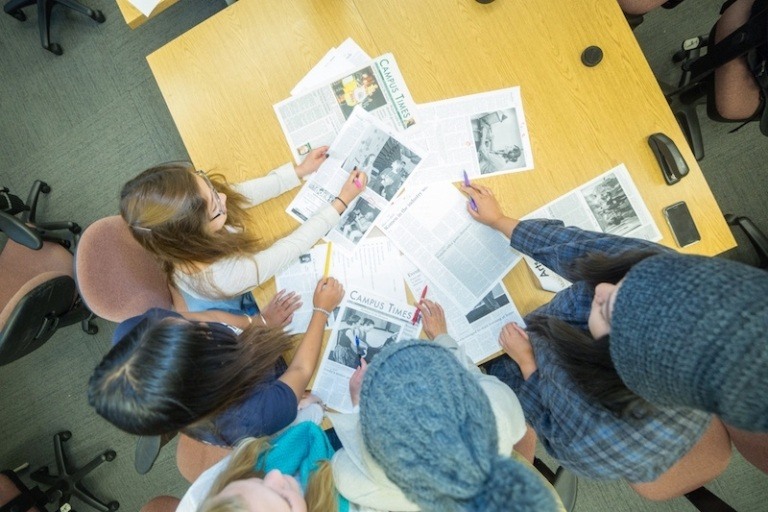Anaheim Ducks Program Celebrates Another Year Partnering with University of La Verne
For elementary school students across California, spring means push-ups, sit ups and other exercises in the state physical fitness test. It is also a time when University of La Verne students and faculty volunteer to help children practice for the test at the Honda Center in Anaheim through an Anaheim Ducks education and fitness program.
The University’s involvement with the Anaheim Ducks stems from alumnus Jason Cooper ’03, a fan development marketing coordinator for the organization.
The partnership is part of the Ducks’ award-winning Scholastic Curriculum Of Recreation & Education (SCORE) program, which Cooper helped develop.
“We talk about what a leader looks like what a leader does,” Cooper said. “It’s about creating curriculum that’s not a burden on the teachers who sign up, because it’s student led.”
Athletic training students Hunter Hill and Daniela Loera, and Professor of Kinesiology Paul Alvarez joined volunteers at the Honda Center in the spring for the Anaheim Ducks Fit Finals. It was an event that drew 1,400 area fifth-grade students for a day of preparation for the California Physical Fitness Test.
“The whole event promotes health and wellness couched in the ‘wow’ factor of having the Ducks sponsor and promote the event,” Alvarez said.
But the University of La Verne’s contribution extends beyond volunteering for fitness preparation.
Concepts from a book co-authored by Associate Professor of Kinesiology Dr. Brian Clocksin have been incorporated into SCORE curriculum.
Called “Using Physical Activity and Sport to Teach Personal and Social Responsibility,” Clocksin’s book contains concepts originally developed in the 1970s by University of Illinois at Chicago Professor Emeritus Don Hellison. The book expands on Hellison’s Teaching Personal & Social Responsibility (TPSR) model to help teachers implement the concepts in the classroom and on the playground.
“Many practitioners expressed challenges with bringing the theory to practice and our book provides the pedagogical strategies on how best to do so,” Clocksin said.
SCORE combines academic initiatives with physical education such as “In-Class Education,” which includes a challenge for fourth-grade students to read for 30 consecutive days for fun. It also features a rewards system for reaching educational goals and a visit with the Ducks to learn how classroom concepts such as math and science apply to hockey.
The physical education program teaches students the fundamentals of hockey, the importance of fitness and character building. Through the Captain’s Challenge health and fitness program, fifth-grade students prepare for the state physical fitness test, while also learning leadership skills.


